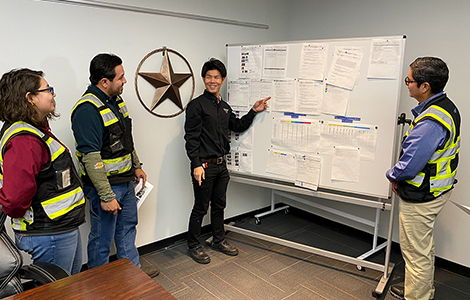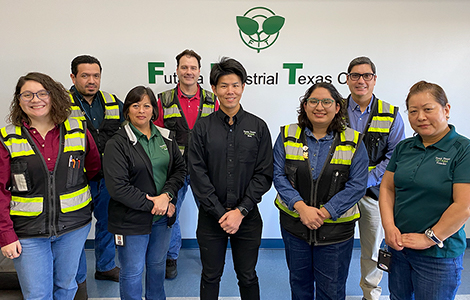
Basic approach
Futaba's human resources development policy is to "continue providing the framework and opportunities for education that will fulfill the human resources management strategy." To this end, we are continuing to implement the human resources development cycle (setting targets and giving roles; demonstrating capabilities and results; evaluations and feedback), and in order to support it, we hold OJT and OFF-JT sessions (various training programs) and training rotations (work transfers). We have defined the skills and capabilities required at each job level and are strengthening education measures to acquire these abilities. In FY2023, with the key theme of "every employee plays an active role," we newly implemented rank-specific training for practical positions and problem-solving training for Group companies in Japan.
In addition, we carried out initiatives to draft career paths at the center level and build the foundations of planned on-the-job training.
Human resources development cycle

Training system (Non-consolidated)
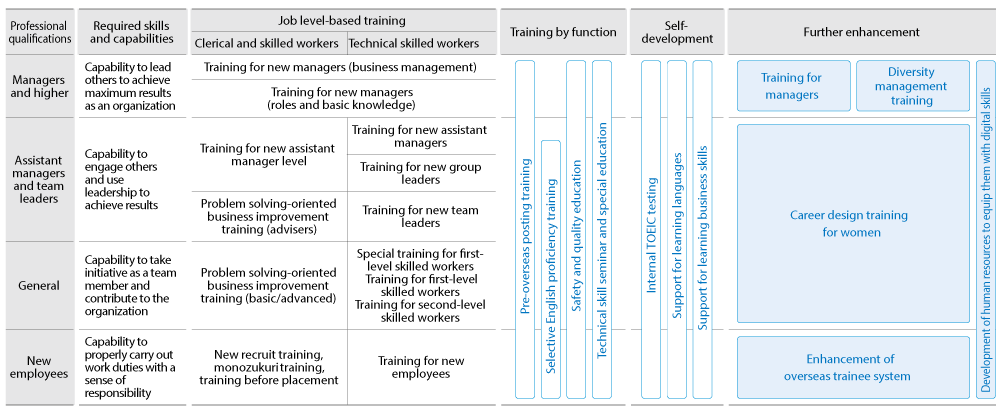
Amount of investment in education based on the training system(Non-consolidated)
*Excluding individual training at workplaces for clerical and skilled workers
| FY | 2020 | 2021 | 2022 | 2023 |
|---|---|---|---|---|
| Amount of investment in education (million yen) | 138 | 136 | 148 | 231 |
Advancing globally-minded human resources development
The Futaba Group operates the Human Resources Strategy Committee made up of members from Center Chiefs of the headquarters in Japan and above. This committee regularly discusses the ideal organizational structure for the management of the entire Group in Japan and overseas, the selection of key positions, and the succession plan for each position. In addition, by selecting future management candidates and discussing development plans such as making tough assignments and rotating candidates, we are driving effective personnel allocation and promoting the growth of individuals with a sense of speed. As for overseas Group companies, Regional Succession Committee (RSC) and Local Succession Committee (LSC) meetings are held in each region with senior management participating as members to formulate and execute succession plans for each of the companies and to systematically develop local human resources. The contents of the RSC and LSC meetings are shared with the Human Resources Strategy Committee, and the Group systematically promotes local human resources to higher positions from a Group-wide perspective.
Developing human resources through active rotation and appropriately allocating human resources
We are promoting a shift of resources to areas where we should focus, such as advanced development. In addition, for divisions that are to be strengthened as the company and that are required to take on the challenge of transformation, we conduct internal open recruitment. We are also building up and operating a system to provide opportunities for transfers from departments outside employees' scope of expertise, opportunities for employees to take on challenges, and opportunities for self-motivated growth.
Strengthening the development of global human resources
The Futaba Group has 15 group companies in eight countries around the world, as well as Japan, with a total of over 10,000 diverse employees. In this business environment, Futaba is implementing measures to improve the English language abilities of employees in Japan and to develop global human resources.
Providing English language learning opportunities
We are working to develop global human resources by providing self-development content, short-term intensive English training during working hours, and role-playing training (e.g., online meetings with overseas staff) for young employees that simulates actual overseas work.
Overseas trainee system
To develop global leaders, we dispatch young employees to overseas Group companies and provide them with opportunities to play active roles on a global scale. In FY2023, in order to support growth from an early stage, we expanded this system, including reducing the requirements for overseas dispatch from as early as the fifth year after joining the company to as early as the third year after joining the company. In addition, since FY2023, local staff from Tianjin, China, have been dispatched to Japan for training, and we provide opportunities for them to learn business operations in Japan, make use of what they have learned, and play active roles overseas. Going forward, we will actively promote the dispatch of local staff from overseas Group companies to Japan for training.
Developing human resources to equip them with digital skills
By utilizing both TQM and digital technologies, we aim to cultivate talent to become a company where all employees are capable of harnessing digital data and speedily transform the ways they work and change operational processes.
In order to promote the planning of cross-divisional issues and make practical use of digital technologies, we conduct accompanying theme-based practical education with the cooperation of external experts. For FY2025, we have set a target of training 570 employees. As of the end of FY2023, we had completed development for about 320 personnel, and we are making progress in training digital personnel as planned.
System to equip human resources with digital skills
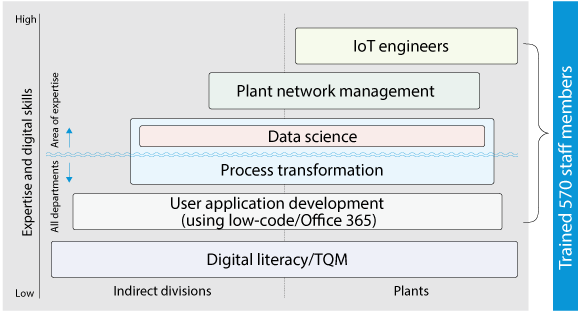
Content of initiatives
-
- Building and supporting an environment for utilizing generative AI
- Hands-on learning of user application development on the theme of issues in one's own department
- Planning and implementation of education and digitalization programs aimed at process transformation
- Fostering transformation talent through the establishment and promotion of cross-departmental initiatives
- Hands-on education for data scientists using data analysis tools
- Hands-on training of plant network managers through system introduction
-
-
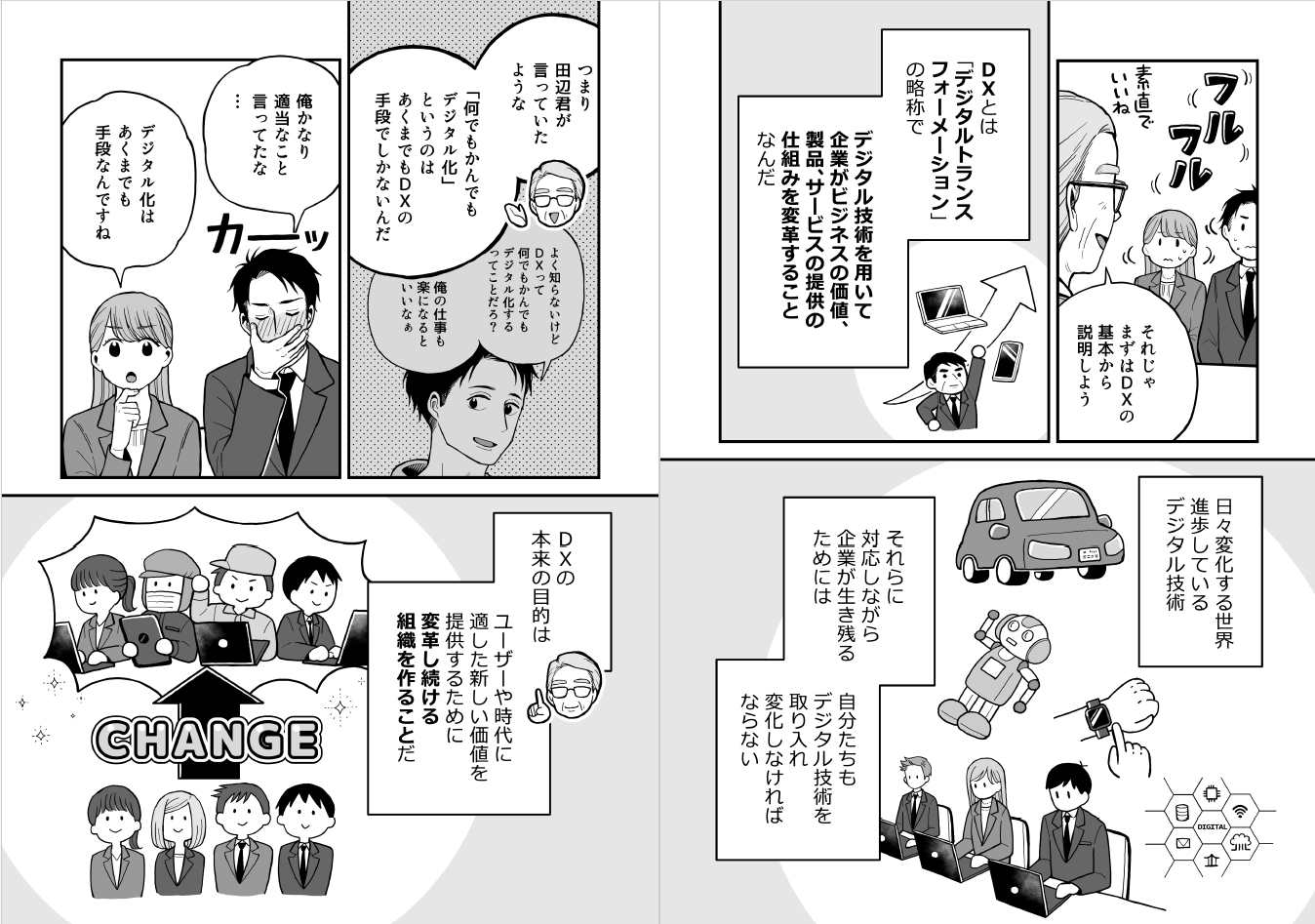
Developing user applications
-
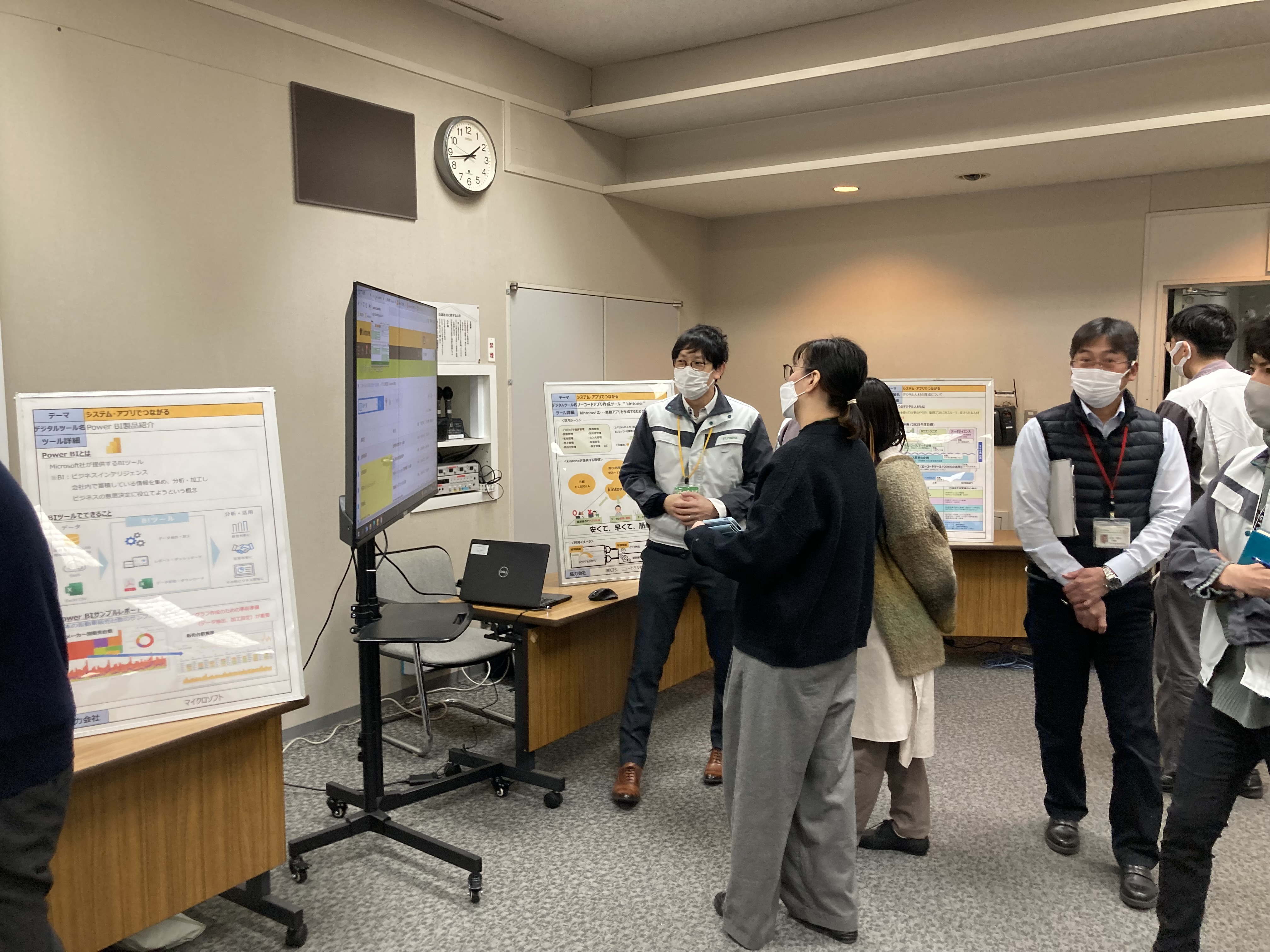
Plant network management
Developing human resources for monozukuri
By prioritizing safety and quality, we will continue our relentless efforts for improvement and standardization, while actively introducing the latest production technologies. This will allow us to expand the responsibilities of each worker (multiskilling), addressing both the challenges of an aging population and declining birth rates, as well as improving productivity. With the aim of strengthening individuals and organizations*1, we will continue to strengthen hands-on education with actual equipment on site.
*1 Strengthening of individuals and organizations:
Individuals: Creating a skills map commensurate with each employee, and systematically upskilling through interviews and confirmation with superiors and subordinates.
Organizations: Strengthening organizations by cultivating team leaders, group leaders, assistant managers, managers, general managers, and plant managers who are capable of executing the five major tasks (safety, quality, cost, productivity, and human resource cultivation).Education through easy-to-understand videos
-
In April 2024, we introduced a video-based education system as a new learning opportunity for all employees of Group companies in Japan. We use easy-to-understand video training materials on safety, quality, traffic safety, etc., working to cultivate talent who can alter their behavior and put principles into practice by improving their awareness and knowledge through dialogue in the workplace.
-
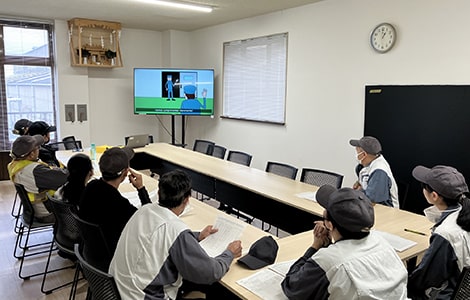
Video education
Holding the Futaba Skills Competition
-
The Futaba Skills Competition, which aims to develop skilled human resources, marked its 10th year in 2023. This year, in addition to the four events of welding, inspection, sheet metal processing, and electricity, lifting operation was also held as an exhibition* round, with a total of 50 participating athletes. On the day of the event, a total of 200 people, including athlete supervisors and colleagues, participated in the event and studied each other's skills.
* Exhibition: Open competition
-
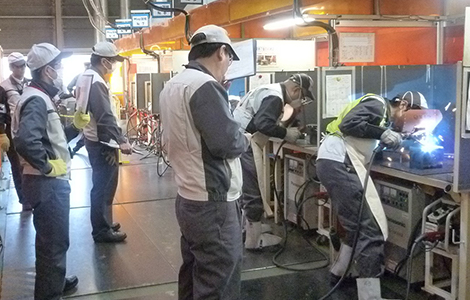
Futaba Skills Competition (lift operation event)
Developing management human resources
We believe that strengthening management at each workplace is the top priority for improving human capital. Each participant of our rank-based training for managers will implement the business PDCA cycle to learn the management methods for effectively and efficiently achieving results. More specifically, they learn how to apply such practical methods as the HoRenSo Method [Reporting, Inform, Consult], Saihatsuboshi Method [Prevention of Recurrence], etc.. We put these methods into practice in administrative and engineering workplaces as the "Futaba way of working."
In addition, based on the role of the manager, employees systematically learn the key points, from clarifying the mission and vision to fostering the workplace culture. -


